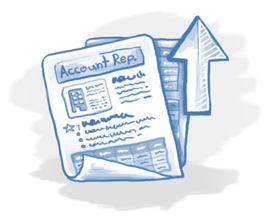Sales velocity is a crucial factor in today’s highly competitive business environment. The last thing a company needs to worry about is the sales force not being able to instantly save to or access data from CRM system, when needed. Hence a common concern about moving to a cloud CRM is the worry about poor cloud service, slow performance, and outages or interruptions. This is also a generally misguided concern about moving a company’s overall IT structure to the cloud.
 Data Center
Data Center
The first factor to examine when considering a move to the cloud is your potential cloud provider’s data center or data centers.
Take a look at the facilities you have currently. If you’re operating a small to medium business (SMB) you most likely have just enough in the way of server power, bandwidth, IT personnel and budget to support your enterprise. For many smaller businesses, even this isn’t the case; it can often become a question of madly juggling computing resources just to stay online, handle the flow of transactions and support your website lead generation and web services and the computing needs of your personnel.
What might a move to the cloud bring to such an enterprise? A competent provider of cloud services will have a powerful data center or data centers. Bear in mind that the handling of data is all they are doing—which is a specialty that most SMBs are not engaged in. A cloud provider will have the server power, the capabilities for maintenance, constant support and backup facilities to deliver you the consistent level that you really need. Again, this is the only service they provide and in order to remain in business, they are going to do it well.
A decent cloud provider will ensure that your cloud CRM data is always accessible and that your sales force is operating at maximum sales velocity. Learn more about data centers here.
Disaster Recovery with Cloud CRM
How many SMBs have true and reliable disaster recovery capabilities? Big corporations have had this element figured out for years; they commonly have complete data replication off-site where it can be rapidly recovered in the case of an on-site fire, flood or other disasters. But an SMB can rarely if ever afford that kind of facility and it there is no question that loss of data would be a huge setback for the whole sales pipeline management and sales process.
A cloud provider, however, is in the business of providing constant service, is going to take no chances that a disaster will bring down the essential cloud computing capabilities of their client roster. They will have in place redundancy and emergency backup capabilities that will, in the event of a disaster, either provide uninterrupted service or service that is only breached for a minimal amount of time.
And of course, a disaster in your own facility will not affect your computing powers one bit—which is one of the compelling arguments for moving to the cloud CRM.
The Key: Your Service Level Agreement (SLA)
With a cloud service provider, you need to see that your service requirements are exactly precisely spelled out in the Service-Level Agreement (SLA) with that provider. This agreement specifies computing power, level of privacy, level of data protection, technical support, disaster recovery times, and any other important details of the service they are going to provide. It’s your data; in the end, you are responsible for it, and to see that it is well cared for.
As you can see, as long as you are dealing with a reputable and competent cloud service provider, the move to cloud CRM can be greatly beneficial to your company and your sales force. It is likely better computing service and facilities that you would ever see otherwise.
How could a cloud CRM solution benefit your company? Find out by signing up for one of our free webinars.




















